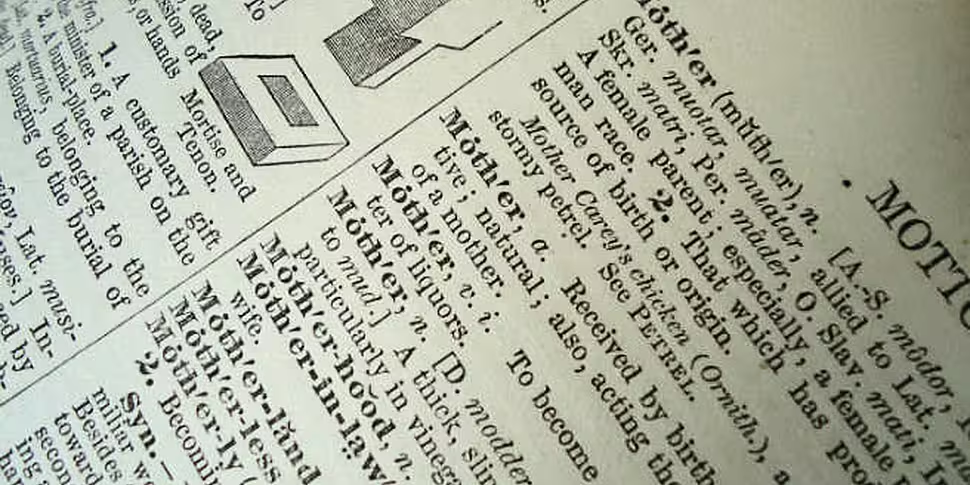Rindfleischetikettierungsüberwachungsaufgabenübertragungsgesetz, a word that referred to the “law delegating beef label monitoring” has been ditched as a result of the EU putting a stop to BSE testing for healthy cattle. The retiring of the 63-character word leaves Kraftfahrzeughaftpflichtversicherung (translating to automobile liability insurance) the language’s longest dictionary-recognised word, although many are now hunting to have some of German’s lesser used ‘compound words’ brought to prominence.
There is some dispute about the longest words in various languages, since grammatical rules can often allow people to compose very long but understandable compound words that nonetheless are unlikely to ever be widely used or recognised by dictionaries or official bodies. Extremely specific technical terms can also continue on for dozens if not hundreds of characters, but again are rarely going to be used in any more than a handful of equally specific circumstances.
In English, the 45-letter pneumonoultramicroscopicsilicovolcanoconiosis was originally coined by members of the National Puzzlers’ League in 1935, but has since been partially integrated into medical lexicon to refer to a type of lung disease caused by inhaling dust. However, the much short silicosis is more regularly used to refer to such a condition. Nonetheless, the extended version is recognised by Webster and Oxford dictionaries, just behind the likes of floccinaucinihilipilification (longest unchallenged word, meaning 'the act of describing or regarding something as unimportant or worthless') and antidisestablishmentarianism.
Modern words rarely have anything on ancient ones, however. The 195-character निरनà¥à¤¤à¤°à¤¾à¤¨à¥à¤§à¤•à¤¾à¤°à¤¿à¤¤à¤¾-दिगनà¥à¤¤à¤°-कनà¥à¤¦à¤²à¤¦à¤®à¤¨à¥à¤¦-सà¥à¤§à¤¾à¤°à¤¸-बिनà¥à¤¦à¥-सानà¥à¤¦à¥à¤°à¤¤à¤°-घनाघन-वृनà¥à¤¦-सनà¥à¤¦à¥‡à¤¹à¤•à¤°-सà¥à¤¯à¤¨à¥à¤¦à¤®à¤¾à¤¨-मकरनà¥à¤¦-बिनà¥à¤¦à¥-बनà¥à¤§à¥à¤°à¤¤à¤°-माकनà¥à¤¦-तरà¥-कà¥à¤²-तलà¥à¤ª-कलà¥à¤ª-मृदà¥à¤²-सिकता-जाल-जटिल-मूल-तल-मरà¥à¤µà¤•-मिलदलघà¥-लघà¥-लय-कलित-रमणीय-पानीय-शालिका-बालिका-करार-विनà¥à¤¦-गलनà¥à¤¤à¤¿à¤•à¤¾-गलदेला-लवङà¥à¤—-पाटल-घनसार-कसà¥à¤¤à¥‚रिकातिसौरà¤-मेदà¥à¤°-लघà¥à¤¤à¤°-मधà¥à¤°-शीतलतर-सलिलधारा-निराकरिषà¥à¤£à¥-तदीय-विमल-विलोचन-मयूख-रेखापसारित-पिपासायास-पथिक-लोकानॠin Sanskrit is said to be the longest ever coherent word in world literature (although translates as a descriptive paragraph in modern English), closely followed by the Ancient Greek λοπαδοτεμαχοσελαχογαλεοκρανιολειψανοδριμυποτριμματοσιλφιοκαραβομελιτοκατακεχυμενοκιχλεπικοσσυφοφαττοπεριστεραλεκτρυονοπτοκεφαλλιοκιγκλοπελειολαγῳοσιραιοβαφητραγανοπτερÏγων (referring to a fictional food). They’re so long you can’t even Google them.
In terms of place names, Llanfairpwllgwyngyllgogerychwyrndrobwllllantysiliogogogoch is often one town that causes amusement for those travelling through Wales, although it's usually sensibly abbreviated to Llanfair PG. However, it’s surpassed by the 85 letter behemoth Taumatawhakatangjjihangakoauauotamateaturipukakapikimaungahoronukupokaiwhenuakitanatahu, a word used in the native MÄori language of New Zealand to refer to a hill on the country’s North Island.
Irish places can’t compete, with Bullaunancheathrairaluinn - a Bullaun in Co. Galway - claiming the Irish language title, and the modest Newtownmountkennedy owning the local English language title of longest place name.
(Photo source)









